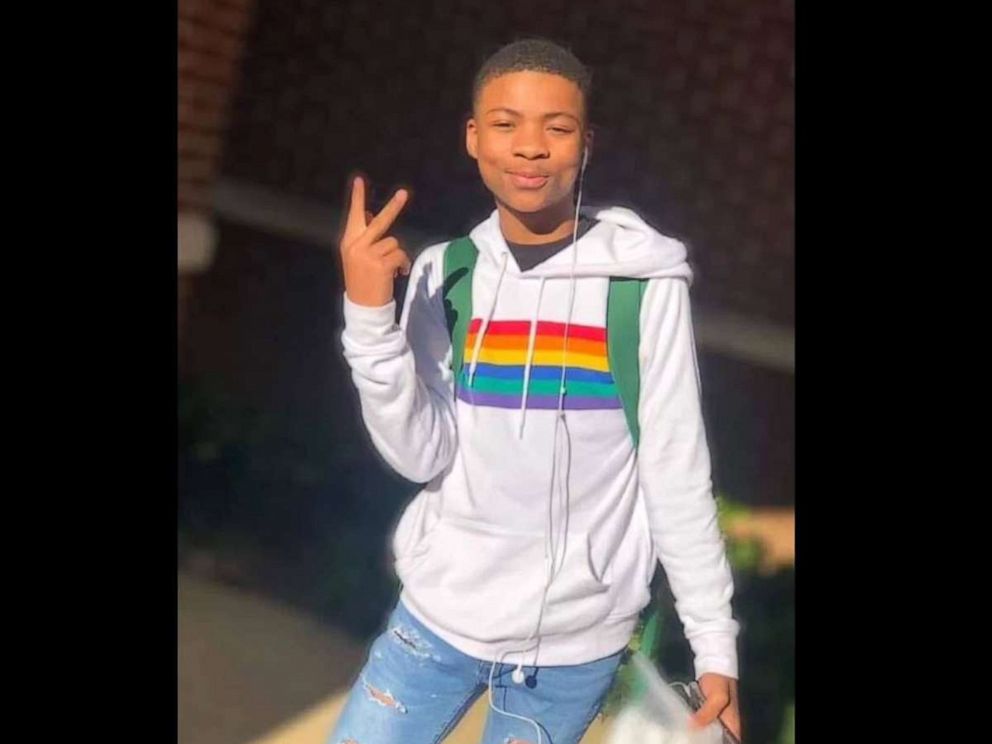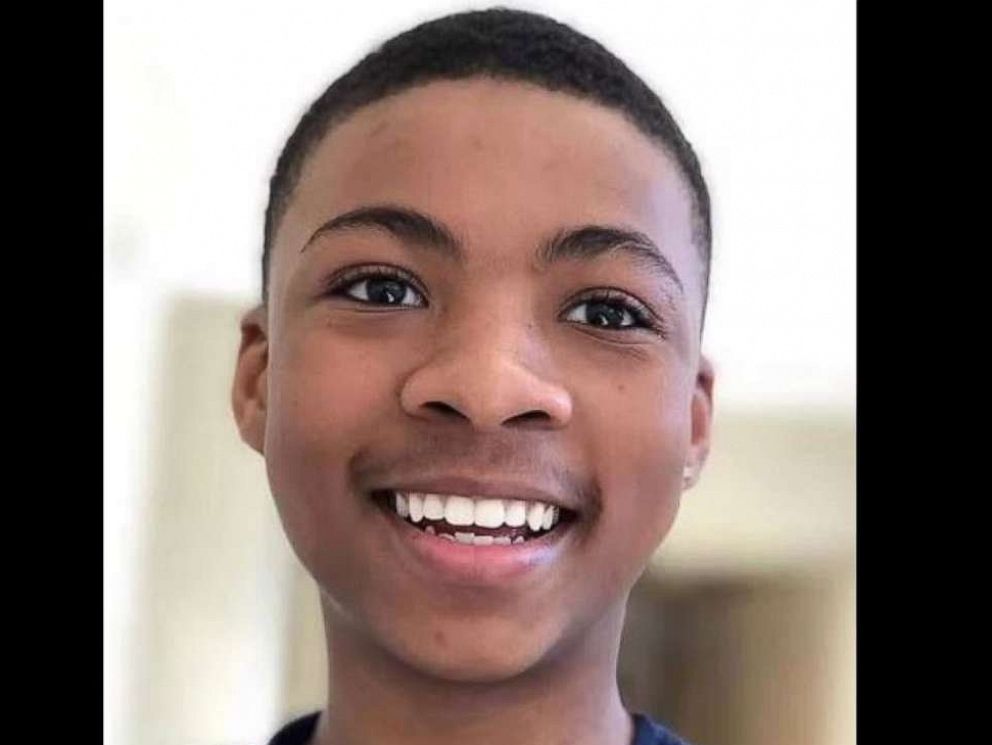An Alabama community is reeling after the shocking death of a high school freshman who took his own life after his family says he experienced anti-gay bullying at school.
Nigel Shelby, a 15-year-old at Huntsville High School in northern Alabama, killed himself on April 18, leaving those who loved him with questions about how his death could have been prevented.
Camika Shelby, his mother, remembered him as a vibrant, outgoing and fun-loving child who would do anything he could to make others smile.
“Nigel was a sweetheart. He loved everybody, he would help anybody. He was an angel,” Shelby said. “I just wish people could’ve seen how special he was while he was still here.”
Speaking in a phone interview with ABC News, Shelby said Nigel was openly gay and had trouble accepting himself. She said he also dealt with relentless bullying at school, which led to long and dark bouts of depression.
“I wish he could have been fully accepted while he was here because it was hard for him. He struggled,” Shelby, 35, said. “He used to ask me sometimes ‘Mama, why couldn’t I just be normal?’ And I’m like, ‘Baby, you are normal. Who you choose to love has nothing to do with the person that you are.'”
Nigel’s death highlights an alarming reality: nearly 43 percent of gay, lesbian and bisexual high school students have seriously considered attempting suicide, compared to about 15 percent of their heterosexual counterparts, according to a 2015 national survey of more than 15,000 students conducted by the Centers for Disease Control and Prevention.
Sarah McBride, a spokesperson for the Human Rights Campaign which considers itself the “largest national lesbian, gay, bisexual, transgender and queer civil rights organization,” said young members of the LGBTQ community, especially those of color, are more likely to die by suicide linked to social stigmas, family rejection, bullying, harassment or abuse.
“It’s important for us to realize the compounding impacts of anti-LGBTQ bias and racism,” McBride said in a phone interview.

LGBTQ people who identify with marginalized communities, particularly LGBTQ people of color, are at greater risks “for dangerous and sometimes tragic outcomes” due to compounding struggles with transphobia, homophobia, racism and cultural stigma, according to McBride.
“When it comes to black LGBTQ students, the discrimination, the bullying and the stress they face is even greater,” she said. “There’s not enough data out there for a clear picture of the full scope of the challenges they face, but from what we know, both anecdotally and from the data we have already, this is a significant crisis.”
“Every day that goes by is a day where we are potentially losing more and more young people. What we see reinforces the urgency of action, the urgency of these issues and the urgent need for more non-discrimination protections,” she added.
McBride said it’s important to speak to teenagers — especially those who identify as gay, lesbian or transgender — about mental health services, depression and suicide-awareness programs.
“We know that when schools have LGBTQ student clubs, it has a tangible impact on the safety and the well-being of LGBTQ students,” McBride said. “We should certainly be creating environments where every student can bring their whole selves to every space and we also need to make sure that we are creating spaces where LGBTQ students and other marginalized students can go for safety, sanctuary and to connect with students with similar life experiences as them.”
The CDC survey showed more than 34% of gay, lesbian and bisexual teens reported being bullied on school property within the previous 12 months, compared to about 19% of their heterosexual peers. Separately, more than 60% of students who identified as gay, lesbian or bisexual reported feeling sad or hopeless, compared to about 27 percent of straight students.
McBride said mental health services are “critical and a fundamental part of the solution,” but there are also proactive steps that cities, states and the federal government can take to create safer school environments.
“That means adopting clear non-discrimination protections for LGBTQ students, staff and faculty at the district, state and federal level,” McBride said. “It means at the federal level, passing the Equality Act, which would add gender identity and sexual orientation to our nation’s preexisting federal civil rights laws.”
It’s also important that LGBTQ students see positive reflections of themselves within their school’s faculty as well as in their reading materials, history lessons and sex education classes, she said.
“Those non-discrimination protections are critical in making sure that not just students are protected, but also that educators and administrators are protected and able to bring their whole selves to work,” McBride said. “When an LGBTQ person can go into a classroom and see themselves reflected … that could not just be life-affirming, it can also be life-saving.”
School officials in Huntsville, Nigel’s hometown, said administrators and counselors “had a close relationship with both Nigel and his mother during his time at Huntsville High School,” but they never received reports about his being harassed.
“They worked with Nigel to ensure that he felt at home at Huntsville High School. Those individuals are absolutely devastated by Nigel’s passing and are doing everything in their power to support Nigel’s mother in any way they can,” Huntsville City Schools spokesperson Keith Ward told ABC News. “They encourage everyone to reach out and support her during this trying and difficult time.”
Ward said the district’s code of student conduct prohibits bullying, and harassment based on identifying characteristics, such as sexual orientation, and calls for “the most extensive punishments and interventions for the offending student.”
“However, Huntsville High School and Huntsville City Schools are only able to act when they receive complaints of bullying or harassment,” Ward said. “Nevertheless, as is customary when there is a tragedy like this, Huntsville City Schools’ administration is investigating the circumstances of Nigel’s time at Huntsville High School.
“The school system will use this information to evaluate its current supports for students who have been bullied and to make changes if appropriate, he added.
Shelby, Nigel’s mom, said he was receiving counseling and had recently started taking medication to help him deal with his depression. She said it was hard for him to talk about his feelings because he didn’t want to bring others down.
“He was just a kid. But no matter what he went through, he always put his own feelings aside to make sure everybody else was OK,” Shelby said. “He asked me constantly, five, six, seven times a day, ‘Mom, are you OK? Is there anything I can do for you?’ He was just so full of love.
“I’m truly blessed that I got to spend 15 years with this child, but it also makes me so sad to know that he’s no longer with me. He was my motivation to keep going. He always kept me lifted up, so to not have that anymore is heartbreaking.”
Shelby said Nigel loved to sing, dance and bring joy to those around him.
“He used to always tell me, ‘Mama, I’m going to be a star!’ He was in theater in school, he played different instruments and loved gymnastics. He was just a performer all the way around,” Shelby said. “He was full of life.”
Shelby said interest in Nigel’s story caused his number of Instagram followers to skyrocket. He had more than 81,000 followers as of Monday morning, compared to about 2,000 before his death. A GoFundMe campaign created in Nigel’s honor raised more than $39,000 in less than 10 days as social media users shared their own stories about contemplating suicide and enduring anti-gay bullying.
The young boy’s mom said the loss of her only child is too fresh to post about, but she plans to share never-before seen images and videos to his Instagram account later on, so people can “see his true personality.” She doesn’t want his legacy to be defined by the way he died.
“It’s amazing. He always wanted to be a celebrity. I hate that he’s not actually here to see this. But I am thankful that in the end, he’s out there and people know him,” she said. “That’s always what he wanted. I wish that it hadn’t come behind something so tragic. But I guess there’s always a blessing in disguise.”

